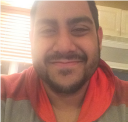 Rashid Karriti – United States (New Jersey)
Rashid Karriti – United States (New Jersey)
Reporting a more profound reality to support peaceful negotiations
Growing up in Clifton, New Jersey meant a comfortable life in a comfortable neighborhood for Rashid Karriti. His parents told him many stories of what life is like in his ancestral homeland, the Occupied Territories of Palestine. They had sent him there many times throughout his formative years so that he could never forget his roots and fully understand the injustices. Yet his trip to their homeland in the summer of 2015 after his freshman year at Rutgers University was different, powerful, and unforgettable.
Rashid needed a visa to enter the West Bank, and he describes an older couple in their seventies also waiting for a visa in a bus station in Jericho, a ten-thousand-year-old city considered safe for tourists. He sat next to them to see if they were from a village or town close to where he was heading, but they were not. They were heading to Gaza, and they’d been sitting at the border crossing for a whole day to get the visa. Rashid thinks of Gaza as an “open air prison.” Incredulously, he asked why they were going there. The couple apparently referred to all Israelis as “they” and “them.” The answer given was, “Because ignoring it is what they would want. They would want us to forget about our homes in Gaza. They would want us to forget Deir Yassin or Jerusalem or Jaffa.” Deir Yassin is where the Red Cross-verified massacre of essentially peaceful Palestinian villagers took place. It was one of the main events that started the war between Israel and the Palestinians. “It’s our basic duty to suffer to show them that we will never leave, that we will never be outsiders, and that we are the rightful inhabitants of this land. Whether you live in a refugee camp in Jordan or live in America, you are always from Palestine.”
Rashid listened, as if thunderstruck. In this moment, he became Palestinian and realized what he owed his parents and the Palestinian people. He knows he was fortunate to have been born and raised in the USA, but there was always an “imperative that if we, Palestinians, who were lucky enough to grow up in the world’s most progressive societies and receive an education that is among the best in the world, we must come back to Palestine to help out.” He asks, “If we do not help, who will?”
Palestine can greatly benefit from the help of this remarkable young man, thanks, in part to Rutgers and its renowned cultural diversity. Rashid’s epiphany in what is widely considered the Holy Land, must also be seen within the context of his experience at Rutgers in that freshman year that preceded it. He’d graduated from a “majority white” high school that had done nothing to broaden his multi-cultural outlook. At Rutgers, his assigned roommate was a Hindu from India and gay—a personification of what he’d come to see as “other” and therefore alien. Rashid was still an adherent to Islam at the time and dreaded rooming with such a person; he held no interest in understanding him. “One day he forced me, upon my refusal, to get dinner with him.” Point blank, the roommate asked why Rashid didn’t like him. Rashid couldn’t quite say that he’d been “molded to believe that this guy was a bad person.” He began to realize that “they loved the same music, movies, books, and, oddly enough, shared the same taste in clothes.” Gradually, Rashid got to know the young man and realized that his own preconditioned beliefs were grossly superficial. His roommate was not less of a person because of his differences. He taught Rashid the difference between perceptions and reality as perceived through actual experiences.
The value he placed on this distinction grew over the summer of 2016. He and his brother traveled across the USA, another eye-opening experience for Rashid. Yet what impressed him most was the book he read throughout the journey, the critically acclaimed Orientalism by Edward Said, detailing the West’s essentially dismissive attitude toward the various perspectives of Eastern scholarship, merely by lumping them all under the label of Oriental. Rashid now dreams of one day writing a similar work to elevate Palestinian and other Middle Eastern scholarship, a book for mass consumption that would remove the filter of centuries-old Western bias to convey a more objective and coherent examination of reality.
Journalism has enhanced Rashid’s writing skills. Though his work toward a BA in political science with a minor in international affairs is his main focus and has earned him membership in the Tau Sigma Honor Society for his grades, he has also studied news reporting and is concurrently working for both for The Observer, based in Newark and The Scarlet Magazine, a Rutgers student-run operation. At one point he had to run a department of twenty people in his manager’s absence for six weeks. The experience taught him some valuable leadership skills, including successfully involving everyone in the group to help them feel ownership of the goals.
Rashid prides himself on his strong conflict-resolution and negotiating skills, and, referring to the Middle East, he says, “I believe that coexistence and harmony may be amplified in the region’s issues.” He envisions himself playing a substantial role and that “through international cooperation, leadership skills and mediation, the world can be a more harmonious place.”
